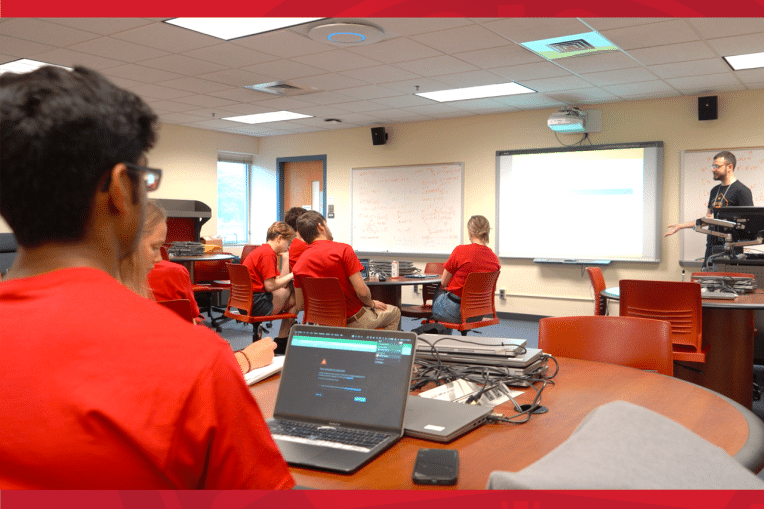
The Cross-Institutional Undergraduate Research Experience (CURE) Workshop, hosted by the Intercollegiate Biomathematics Alliance (IBA), June 5-10, at Illinois State University, is a summer research program designed to prepare undergraduate students for graduate-level research while advancing professional academic development for their futures.
Biomathematics, defined by Illinois State University’s Professor of Mathematics and IBA Executive Director Dr. Olcay Akman, is “a science in the interface of biology, mathematics, statistics, computer science, ecology, and related fields.” Akman said with the use of biomathematics, workshop participants model life problems, make predictions, and develop strategies for real-life scenarios like diseases, global warming, cancer, and the coronavirus.
At the CURE workshop, students select a research topic, work in small groups, and collaborate with faculty research mentors and industry professionals to experience the process of conducting research in mathematical biology.
Since the workshop was developed in 2014, Akman said it has gained national recognition from students. Students and faculty from a wide range of universities in the U.S. traveled to Illinois State University to participate in the weeklong workshop. In preparation for the in-person sessions held on campus, participants met for the Pre-Workshop Online Boot Camp, May 15-June 2.
“It’s an academic year crammed into a week,” Akman said. “Students start their day with a formal lecture on a topic that’s related to the core of the workshop. Then, faculty members from various institutions teach them hands-on formats of various tools used in research, such as computer programming, modeling, and data analysis techniques.”
During the workshop, students research their topics in groups led by Illinois State graduate students. Akman said toward the second half of the week, faculty research mentors propose research projects to students and break out into sessions to discuss their projects of interest.
“Once the workshop ends, students go back to their home institutions, but they continue to stay in touch with their faculty research mentors to keep working on the projects with them and report to us weekly on their progress reports,” he said.
Akman said after the summer workshop concludes, the students will later attend the annual Biomathematics, Ecology, Education, and Research (BEER) Symposium, held since 2007, where they will present their research results and submit their papers to a journal that the University sponsors.
Written by: Julie Mana-ay Perez for Illinois State University; used with permission. Find the original article here.
Founded in 1978, the Council on Undergraduate Research (CUR) focuses on providing high-quality and collaborative undergraduate research, scholarly, and creative activity. Among the many activities and networking opportunities that CUR provides, the organization also offers support for the professional growth of faculty and administrators through expert-designed institutes, conferences, and a wide-range of volunteer positions. The CUR community, made up of nearly 700 institutions and 13,000 individuals, continues to provide a platform for discussion and other resources related to mentoring, connecting, and creating relationships centered around undergraduate research. CUR’s advocacy efforts are also a large portion of its work as they strive to strengthen support for undergraduate research. Its continued growth in connections with representatives, private foundations, government agencies, and campuses world-wide provides value to its members and gives voice to undergraduate research. CUR is committed to inclusivity and diversity in all of its activities and our community.
CUR focuses on giving a voice to undergraduate research with learning through doing. It provides connections to a multitude of campuses and government agencies, all while promoting networking and professional growth to its community.

